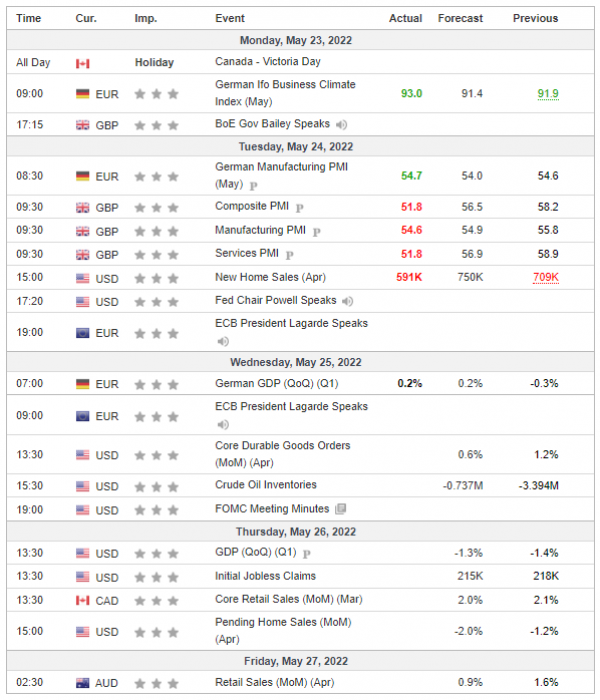
The euro strengthened against the dollar, climbing to its highest level in nearly a month above 1.07. In addition to the broad dollar weakness, hawkish comments from ECB President Lagarde, stating that they were “likely to be in a position” to exit negative rates toward September, helped the oversold euro. She also said the ECB does not foresee a recession in the euro area. Additionally, ECB Governing Council member Galhau noted that a deal on rate hikes in the near term was ”probably done”.
The British pound also rose against the dollar. Bank of England Governor Andrew Bailey said that they are prepared to raise the policy rate again if needed but acknowledged that tightening must take a likely income shock into account.
The Japanese yen hovered around 127 consolidating further after previous heavy losses. Bank of Japan's official reiterated that they will continue to ease the monetary policy to assist the economy.
Gold prices rose as speculation for an aggressive Fed move eased and the rising dollar, which normally moves inversely to gold, receded. U.S. 10-year Treasury yields also eased to 2.8%.
All major US stock indexes bottomed last week. UBS downgraded their forecasts for China’s economic growth. UBS cut its for 2022 gross domestic product growth forecast to 3% from 4.2%, citing the impact of Covid zero tolerance policy. Beijing announced that work-from-home orders will be extended.
Oil prices rose but were little changed last week. Traders’ concerns about a possible recession and weaker consumption grew amid signs the EU is struggling to agree on an embargo on Russian imports which acted as a drag on prices. However, US consumption is expected to pick up further over as the US -driving season gets under way, while the EU energy embargo on Russian oil imports might be decided by the end of May.